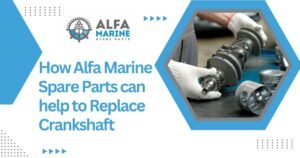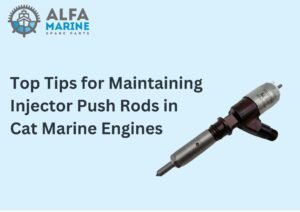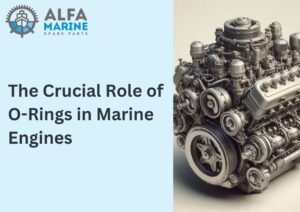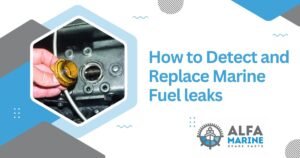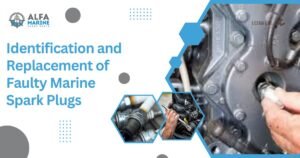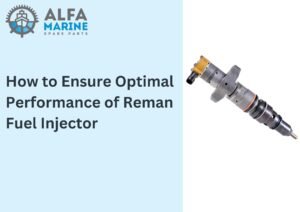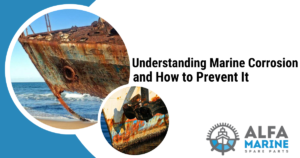
Marine Corrosion: Pondering the gravity of the situation and starting the use of the effective preventive measures.
Imagine days sailing on the lake! The sunlight down on the water, the breeze in your hair, and the world around is like a perfect match. But lurking beneath the surface is a constant threat to your boat’s longevity: marine corrosion.
Unable to speak, this pest can gnaw the hull, fasteners, and other boat parts with the ensuing costs for repairs and jeopardizing the safety of the boat. Through becoming a master of the science of marine corrosion and put in protective actions of you, the ship will be ready for many years of sea sailing.
The Science Behind the Threat: The process of corrosion in the marine environment.
Saltwater acts like a battery electrolyte: Salt water is an conductor of electricity and hence the corrosion is propelled.
Metals become players: Incase you dip salt water on two different metals, they act like cathode and anode in a battery.
The current flows: As the current starts to move along the metals the takes part in this process together with water oxygen.
A sacrifice is made: The corroding (above) or noble metal is the anode, while the less noble metal in most cases is protected at the cathode.
The marine environment provides a fertile ground for corrosion of metals that normally find use in boats such as stainless steel, aluminum, and zinc.
Understanding the Culprits: Crucial Factors of Corrosion in the Marine Environment
Many of these could act as agents of destruction.
Galvanic corrosion: This corroding effect takes place when various metals come into physical contact with saltwater. As if the stronger one among two metals gets corroded faster in order to prevent the weaker one from being corroded.
Stray current corrosion: Given any electrical system connected to your boat, you may have internal leakage current, which as a result of the electrical dysbalance, can be the cause of increased corrosion. Casting a shadow on the best efforts of corrosion-fighting coating, something external like an unexpected current modification in the atmosphere could also be the culprit of the bad electrical balance in the air and water besides the phenomenon of corrosion.
Environmental factors: By illustration, temperature, salinity levels, and the frequency or use of your boat will be the corroding factors that can have affected corrosion rate. Therefore, energy diffuses at higher speed, and its capacity is amplified.
Building a Defense: Strengthening the Efficiency of the Policies Incorporated for Corrosion Control
The positive is, therefore, there are specific techniques that one can use to protect the marine from the impacts of marine corrosion. Here are some key strategies to consider:Reviewing the strategies below will help you find answers: List
Choosing the right materials: Depending on the specified materials as with the corrosion resistant painting you apply stainless steel and certain types of alloyed aluminum important components which play a significant role in keeping it all together.
Cathodic protection: Why impossible? Make up your own imaginary shield! sacrificial anodes out of zinc or magnesium are employed that are the materials that corrode more compared to that of the hull and consequently this excludes the hull from corrosion. Whenever these anodes have reached the end of their useful life, they need to be replaced with new ones and this is part of the impact on the cost.
Antifouling paint: The ironically fitting and favorable property is the proper coating which keeps metal away from the seawater by functioning as an armor shield of corrosion preventing marine species from being covered with and adhering to it.
Impressed current systems (for advanced boaters): Larger ocean-going service craft and those that work in a harsh environment, the impressed current system takes a more stubborn protective function by supplying external energy resources.
Regular maintenance is key: Just the same, a regular car washing has elements that are the sure key to proactive corrosion control; in this either case, the cleaning and inspection are the factors to be sure of the result. Going on the water less frequently would prevent the salt from remaining on the left by washing it away; and regular checkups would stop the early leaks to avoid their becoming more severe.
Conclusion: Attaining the Safety of Your Ship, thus its Survival to has a Lifespan over a Long Time of the Ship and Personal’s Health.
By having knowledge of marine corrosion science and applying these kinds of prevention methods at the same time you are able to reduce your possiblity to suffer big amounts of damage and stay in good shape of your ship all the time. It is just as important to have regular maintenance and contact licensed inspectors periodically to get professional opinions added to your corrosion protection plan. A Marco Polo approach is what you need to skillfully steer your boat through the oceans, assailing the challenges of a marine environment with a complete confidence that your craft will live with you many adventures to come.
General FAQs
Q: Specify, what is marine corrosion?
A: Corrosion of metals is the appearance of non-metallic oxides on boats a consequence of their contact with seawater.
Q: Why is it necessary that the corrosion is prevented on my boat?
A: The wear and tear of corrosion can bring about the decrease in the components’ strength to a point that even if this leads to expensive repair and possible safety hazards, one has to deal with it.
Q: How to tackle my boat’s corrosion?
A: Outward signs of rusting assemble themselves when the metal surface shows blistering, cracking or discoloration. Corrosion is the scourge of all boats; when in doubt seek a marine technician professional to perform an assessment.
Prevention FAQs
Q: What may be the best way to limit corrosion on my boat?
A: Corrosion can be prevented in many ways such as creation of resistant to corrosion materials, utilization of antifouling paints, and using cathodic protection systems.
Q: In advance, what’s meant cathodic protection?
A: Sacrificial anodes, in this case, follow the rule of thumb in that they corrode more easily than the boat’s metals hence, preventing it from corrosion.
Q: What are steps I need to take to prevent my boat chipping off or damaging?
A: With freshwater rinsing, the salt residue is removed and not allowed to build and when done regularly, early signs of corrosion can be detected to prevent proliferation. Seek the opinion of a marine specialist who provide particulars on the maintenance of your watercraft.
One of the ways we can identify the seriousness of marine corrosion is by going through our FAQs (Frequently Asked Questions) and gaining this knowledge in order to implement measures to protect your boat. Recall, aside from safe boating methods, do pay attention to professionals who may have the competence to point certain things out.


